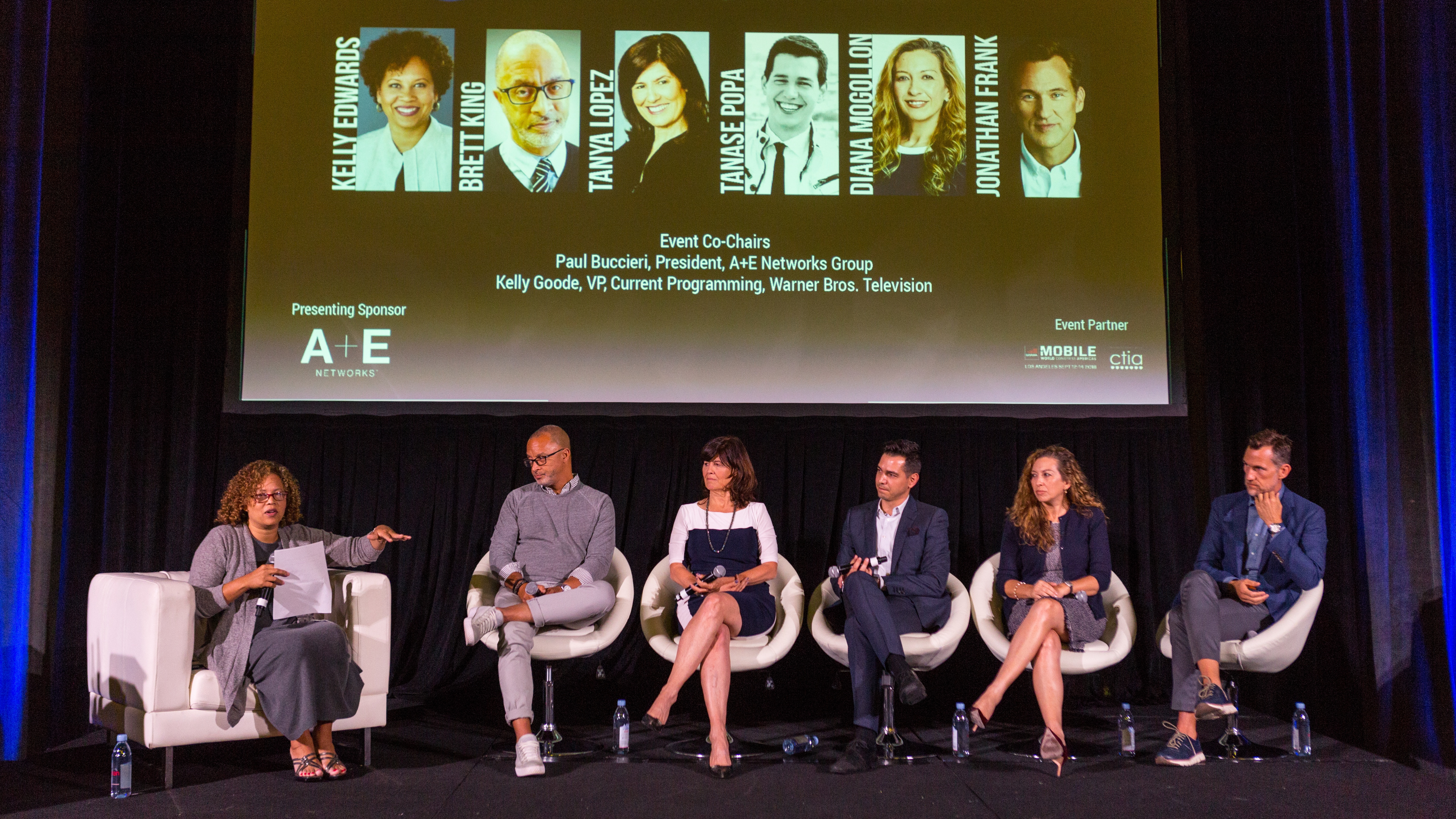Sony, FX, Lifetime Execs Talk Evolving Inclusion Programs
By Danielle Turchiano
LOS ANGELES (Variety.com) – Although there have been strides made toward inclusion both in front of and behind the camera — from the guest actor categories at the 2018 Emmys being won by all African-American actors to Latina speaking roles hitting a historic high during the last television season — there is still much room to grow.
“I find it ironic and sort of troubling that a transgender person isn’t considered diverse,” Jonathan Frank, executive vice president, current programming and production at FX Networks said at an HRTS diversity spotlight event Wednesday. “A female-to-male transition is now considered a man [but] that person, I’m sure, comes across a million challenges. … I consider it a diversity hire because I know that person came through a million challenges in his life and was probably denied opportunities.”
To date, most of the diversity programs set up across networks and studios, including Sony Pictures Entertainment’s diverse directors program, which they are following with a diverse writers program, focus on men of color and women in general. While LGBTQ individuals are welcome to apply — and many make it in, noted Sony’s vice president of creative programming, diversity & inclusion, Brett King — they are not specifically “targeted” for inclusion when calls go out to agents to send candidates.
HBO’s senior vice president of talent development Kelly Edwards, who moderated the event, pointed out that many LGBTQ writers and directors are white men, who “don’t have a traditional barrier to entry” at places like HBO. Because “they can walk through any door,” the diversity programs focus on those who have otherwise been denied.
When it comes to Sony’s new diverse writers program, King shared that the goal is to give those selected a development deal over a spot in a new writers’ room. The reason for this, according to King, is because often those writers are “put on a show and known as the diversity hire.” Not only are they usually the “last person in the room,” he noted, but also their salary does not come out of the show’s budget, and “when you get stuff for free, sometimes you don’t value it as much.”
Additionally, in this world where episodic orders are increasingly shortening — sometimes to only eight episodes, he pointed out — it is “much more difficult than in previous years” for new writers to gain enough experience in only one season of a show.
“They come in under a cloud and don’t succeed as much as they [can],” King said.
Instead, Sony is planning to “do blind script deals with two drama and two comedy writers” they select for the program, King said, including paying them accordingly and taking them out into the marketplace with their scripts. Currently, King has calls out to agents asking them to send in the “writers they think are ready to make their mark,” specifically looking for men of color and women in general.
“If you allow diversity to happen, if you give the platform for diversity, diversity takes place automatically,” King said.
In addition to these key above-the-line inclusion programs, Tanya Lopez, executive vice president, movies, limited series & original movie acquisitions, Lifetime and LMN, stressed the need for more support for women who want to join unions and train for jobs as directors of photography or electricians, for example.
“One of the things we can do, and one of the things the California Film Commission can do, is have more production here so women can go home and see their families,” she said. “There’s no way these women can be trained if they’re not provided support so they can venture out.”

